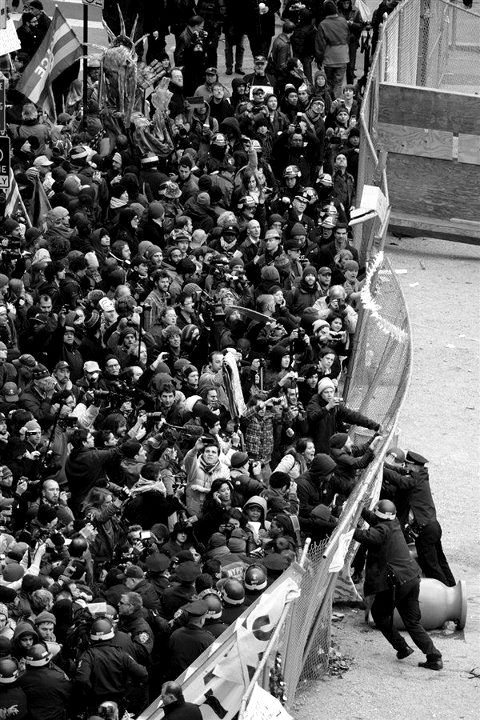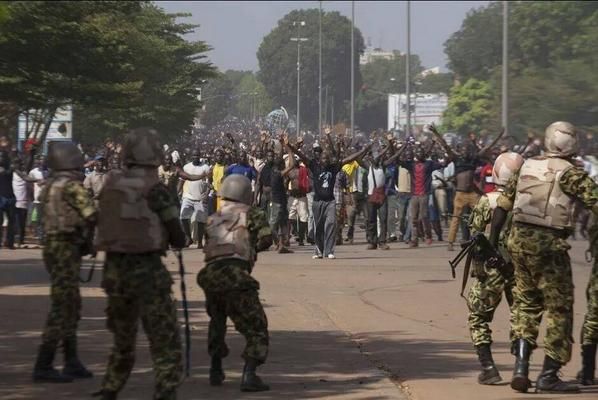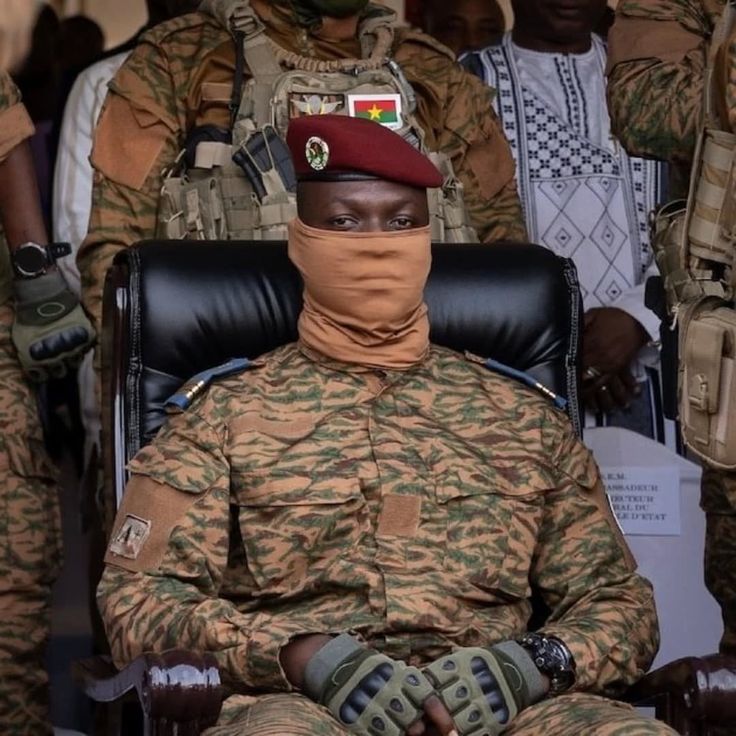Revolution vs Reform: What Africa Really Needs

At the Crossroads of Change
Africa faces a defining moment. Disillusionment with stagnant development, entrenched authoritarianism, and elite capture has spread across cities from Lagos to Kinshasa, Nairobi to Khartoum. Street protests echo with the energy of a restless youth, demanding both transformation and dignity. In this climate of urgency, the question becomes unavoidable—does the continent need reform, or does it demand revolution?
Understanding the Divide
While reform implies a methodical, institutional approach—with emphasis on laws, policy, and civic engagement—revolution represents rupture. It is immediate and sweeping, overturning power structures and rebuilding from scratch.
Historically, both methods have shaped Africa’s political landscape, but recent events throw this choice into stark relief. Which of these methods can genuinely deliver justice, hope, and development for ordinary Africans?
The Promise and Limits of Reform
There is reason to trust reform. Nations like Ghana and Botswana illustrate how democratic institutions can gradually foster stability, credible elections, and incremental improvements. Yet reform’s effectiveness hinges on the cooperation of elites.
Where power is self-perpetuating, reform often becomes window dressing—improving optics while leaving core issues unaddressed. When leaders manipulate term limits or muzzle dissent, reform stalls and citizens lose hope.
Revolution as Urgency in Motion

image credit: pinterest
In contrast, revolution is born of frustration. When reform appears futile, people take to the streets. As witnessed inBurkina Faso in 2014, when mass protests erupted against attempts to prolong presidential tenure, citizens forced constitutional rollback and the resignation of long-term leader Blaise Compaoré.
More recently, in 2025, Captain Ibrahim Traoré's coup-style leadership inspired global attention—not for its legality, but for its appeal to youth seeking swift change and self-sufficiency.
However, revolution alone is no guarantee of progress. Many African nations have replaced dictators with chaos or new elites masquerading in reformist robes. Libya, post-Gaddafi, disintegrated. Ethiopia saw ethnic conflict after uprising. Zimbabwe fell from one long rule into another. The pattern shows that overthrowing a government is just the beginning—not transformation.
Between Reform and Revolution: A Hybrid Future
In truth, Africa may not need to choose. The most effective path often lies in straddling both, combining the urgency of revolution with the structure of reform. Successful transitions have emerged when resistance has led to rebuilding. Tunisia and South Africa illustrate how protest and negotiation can align to birth new systems. Nigeria’s #EndSARS protests, though unfinished, have shown the power of agitation paired with civic engagement.
Made—Toned.jpeg)
image credit: pinterest/ a demonstration of the endsars protest
Rebuilding the System from Within
For real change, vision must meet structure. Reformists need bold ambition; revolutionaries need strategic discipline. A new politics must emerge—led by citizens, not elites. It must harness protest energy into institutional accountability and policy transformation. Africa’s future depends on citizens who refuse to accept the old order while actively shaping a new one.
For change to be meaningful, reform must go beyond policy pledges—it must deliver tangible impact with vision and discipline. This is where small yet powerful initiatives reveal how governments can rebuild legitimacy and trust.
Take Burkina Faso: in 2025, President Traoré launched a project distributing over 10,000 tractors, seeds, and tools to rural farmers, aiming to transform local food production, boost income, and counter hunger in small communities. This effort spoke to promises of economic equity, prioritized deserving citizens, and tried to demonstrate that governance can serve rather than extract. Though delivered under a military regime, the model shows how even limited reform—particularly when aligned with economic empowerment—can resonate deeply with citizens.
From urban protests to rural gizmos, the Burkinabé example underscores that reform is not inherently passive. When leaders invest in local farming capacity, farm schools, or rural infrastructure, they begin to rebuild the continent from the ground up. It's evidence that reform means more than conversation—it must change conditions. At its best, reform without revolution can deliver meaningful gains, and revolution without reform can lose them.
Tracking the Burkinabé Example

image credit: pinterest
The rise of Captain Traoré further illustrates complexity. Praised for raising civil servant wages and cutting ministers’ salaries, he garnered popularity from rural communities previously neglected by central power . His image as a pan-Africanist leader resisting Western influence earned attention, especially amid criticism of IMF and World Bank backing . Yet his rule remains military, undemocratic, and risky—a reminder that charismatic revolution must yield to accountability to endure.
Challenging Global Hypocrisy
Global powers often posture in support of reform while quietly endorsing autocrats when it suits their interests. Election monitors validate rigged votes. Foreign aid props up corrupt systems. Such double standards make genuine reform more difficult and reinforce the appeal of revolution. Africa’s political rebirth must come from internal will—not external rhetoric.
Youth and the New Generation of Leaders
More than anything, Africa’s transformation will be defined by its youth. From farmers to tech workers, lecturers to activists, it is ordinary citizens demanding extraordinary change. They are not impulsive radicals—but organizers building movements, using tools like social media, civic platforms, and mutual aid, to pair protest with policy.
Their methods are creative and grassroots-driven: using social media to mobilize, mutual aid to support communities, music and storytelling to shift narratives, and community-building to build pressure from the ground up.
A remarkable demonstration of youth-inspired mobilization occurred on April 30, 2025, when thousands took to the streets of Burkina Faso and rallied globally in support of Captain Ibrahim Traoré. This worldwide show of solidarity, as documented in Sahel Liberty News, reflected more than allegiance to a leader—it revealed the expectation of accountability and delivery from new governance structures. Young activists and rural communities saw in Traoré not just a symbol of disruption, but a potential agent of structural change. This unprecedented turnout illustrated how young people are no longer passive observers—they are driving the narrative, shaping policy demands, and demonstrating that African leadership must earn its legitimacy through tangible results.
This moment embodies everything we need from political transformation: a citizenry that refuses to settle for optics, that aligns political vision with direct impact, and that continues to scrutinize leadership—demanding redistribution, restoration, and reform. In other words, youth are no longer just resisting—they are they are reconstructing the future, blending revolutionary energy with organized reform.
Conclusion: Not Revolution or Reform—but both
Africa’s future is not found in choosing one over the other. The continent needs reform with revolutionary urgency, and revolution managed with reformist discipline. It needs vision grounded in accountability, leadership rooted in service, and institutions built with citizen involvement.
Africa must rediscover its power—not through nostalgia or slogans, but through organised hope, civic courage, and persistent reform. Only then can the promise of independence finally deliver power, equity, and real liberation for its people.
Recommended Articles
You may also like...
Bundesliga's New Nigerian Star Shines: Ogundu's Explosive Augsburg Debut!

Nigerian players experienced a weekend of mixed results in the German Bundesliga's 23rd match day. Uchenna Ogundu enjoye...
Capello Unleashes Juventus' Secret Weapon Against Osimhen in UCL Showdown!

Juventus faces an uphill battle against Galatasaray in the UEFA Champions League Round of 16 second leg, needing to over...
Berlinale Shocker: 'Yellow Letters' Takes Golden Bear, 'AnyMart' Director Debuts!

The Berlin Film Festival honored
Shocking Trend: Sudan's 'Lion Cubs' – Child Soldiers Going Viral on TikTok

A joint investigation reveals that child soldiers, dubbed 'lion cubs,' have become viral sensations on TikTok and other ...
Gregory Maqoma's 'Genesis': A Powerful Artistic Call for Healing in South Africa

Gregory Maqoma's new dance-opera, "Genesis: The Beginning and End of Time," has premiered in Cape Town, offering a capti...
Massive Rivian 2026.03 Update Boosts R1 Performance and Utility!

Rivian's latest software update, 2026.03, brings substantial enhancements to its R1S SUV and R1T pickup, broadening perf...
Bitcoin's Dire 29% Drop: VanEck Signals Seller Exhaustion Amid Market Carnage!

Bitcoin has suffered a sharp 29% price drop, but a VanEck report suggests seller exhaustion and a potential market botto...
Crypto Titans Shake-Up: Ripple & Deutsche Bank Partner, XRP Dips, CZ's UAE Bitcoin Mining Role Revealed!

Deutsche Bank is set to adopt Ripple's technology for faster, cheaper cross-border payments, marking a significant insti...
